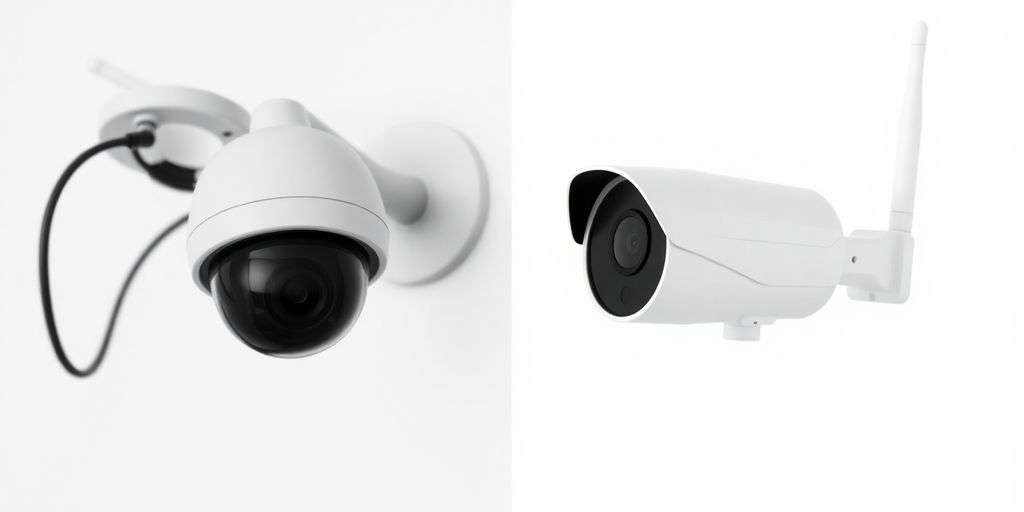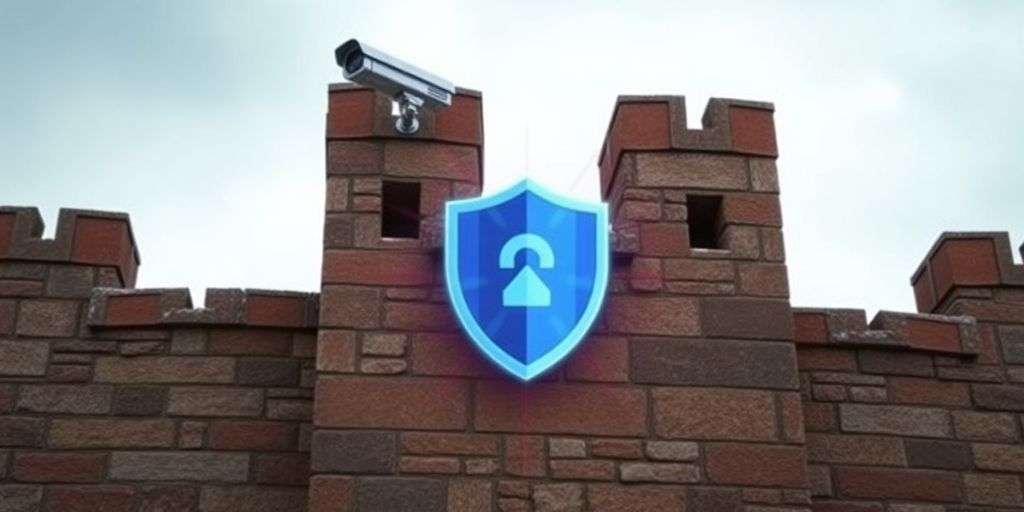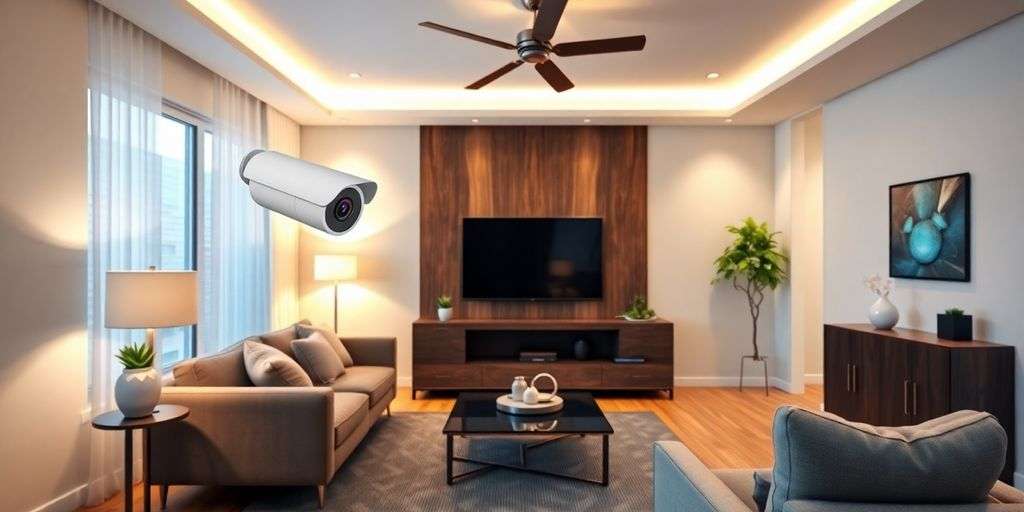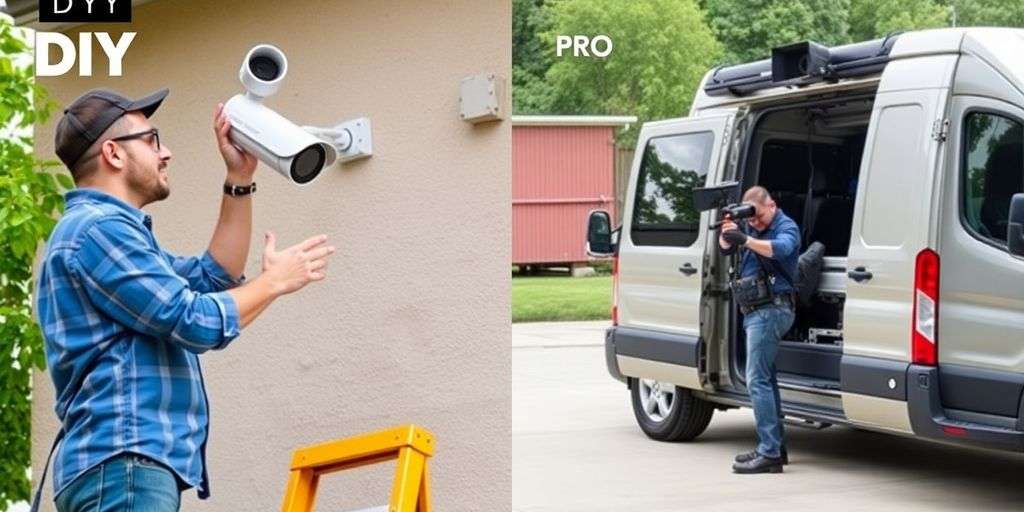Advantages of Wired CCTV Systems

Consistent Video Quality
Wired CCTV systems are renowned for their consistent video quality. By using physical cables, such as coaxial or Ethernet, these systems provide a stable connection that is less likely to suffer from interference. This results in clearer footage, which is essential for identifying important details like faces and licence plates.
Advanced Features and Integration
Many wired CCTV systems support advanced features, including:
- High-definition video
- Night vision capabilities
- Motion detection
These features enhance the effectiveness of surveillance, allowing for comprehensive monitoring in various conditions. Additionally, wired systems can easily integrate with other security measures, such as alarms and access controls, creating a more robust security network.
Long-Term Reliability
Wired CCTV systems are known for their long-term reliability. Although installation may require more effort, the benefits often outweigh the initial challenges. The fixed nature of wired systems makes them less vulnerable to tampering, ensuring that your security remains intact.
Ideal for Large Properties
For larger properties, wired CCTV systems are particularly advantageous. They can cover extensive areas without losing signal quality, making them suitable for:
- Commercial buildings
- Industrial sites
- Large residential properties
Wired CCTV systems offer a dependable solution for surveillance needs. Their consistent video transmission and resistance to interference make them an ideal choice for various security applications.
Benefits of Wireless CCTV Cameras
Ease of Installation
Wireless CCTV cameras are incredibly easy to install. Without the need for extensive wiring, you can set them up in no time. This makes them perfect for those who want to enhance security without the hassle of complicated installations.
Remote Access and Monitoring
One of the standout features of wireless CCTV cameras is the ability to access footage remotely. Users can view live video feeds on their smartphones or tablets from anywhere with an internet connection. This flexibility allows for real-time monitoring, ensuring that you can respond quickly to any potential threats.
Flexibility in Placement
Wireless cameras can be placed almost anywhere, making them ideal for various settings. Here are some key points:
- They can be easily moved if needed.
- Perfect for monitoring hard-to-reach areas.
- Great for rented properties where modifications are limited.
Ideal for Rented Properties
For those living in rented spaces, wireless CCTV cameras are a fantastic choice. They do not require permanent installation, allowing tenants to enhance security without making structural changes.
Wireless CCTV cameras offer a versatile solution for modern security needs, combining ease of use with effective monitoring capabilities.
Comparing Security and Reliability
Signal Interference Issues
Wired CCTV systems are less prone to signal interference compared to their wireless counterparts. This is because they use physical cables to transmit data, ensuring a stable connection. In contrast, wireless systems can face disruptions from various sources, such as other electronic devices or environmental factors.
Susceptibility to Hacking
Wireless CCTV cameras can be vulnerable to hacking if not properly secured. It is crucial to implement strong passwords and encryption protocols to safeguard the footage from unauthorised access. Wired systems, on the other hand, are generally more secure due to their physical connections.
Power and Network Dependencies
Wired systems rely on a direct power source and network connection, which can be advantageous for consistent performance. Wireless systems depend on battery life and Wi-Fi signals, which may lead to interruptions if not managed properly.
Tamper Resistance
Wired CCTV cameras are typically more tamper-resistant due to their fixed installations. The physical connections make it harder for intruders to disrupt the system. Wireless cameras, while flexible, can be more easily moved or disabled.
In summary, while both wired and wireless CCTV systems have their strengths, wired systems often provide superior security and reliability, making them a preferred choice for many security applications.
Choosing the Right CCTV Connectivity Type
When deciding between wired and wireless CCTV systems, it is essential to consider several factors that align with your specific needs. Understanding these factors can significantly impact your security setup.
Assessing Your Security Needs
- Property Size: Larger properties may benefit from wired systems due to their reliability over long distances.
- Type of Surveillance: Consider whether you need constant monitoring or flexibility in camera placement.
- Environmental Factors: Assess if your area is prone to interference, which could affect wireless systems.
Cost Considerations
- Initial Investment: Wired systems often require a higher upfront cost due to installation.
- Long-Term Value: While wireless systems may seem cheaper initially, consider potential costs for maintenance and upgrades.
- Insurance Benefits: Some insurance companies may offer discounts for more secure wired systems.
Installation Challenges
- Wired Systems: Installation can be complex, requiring professional help, especially in large properties.
- Wireless Systems: Easier to install but may require adjustments for optimal signal strength.
- Future Modifications: Consider how easy it will be to add or move cameras in the future.
Future-Proofing Your System
- Technology Advancements: Ensure your system can adapt to new technologies, such as higher resolution cameras.
- Integration with Other Systems: Look for systems that can easily integrate with alarms and other security measures.
- Scalability: Choose a system that allows for easy expansion as your security needs grow.
In conclusion, selecting the right CCTV connectivity type is crucial for effective surveillance. By carefully evaluating your needs, costs, installation challenges, and future requirements, you can make an informed decision that enhances your security. Remember, the right choice can provide peace of mind and protect your property effectively.
Final Thoughts on Wired and Wireless CCTV Systems
In conclusion, both wired and wireless CCTV systems have their own strengths and weaknesses. Wired systems are known for their reliability, providing clear video and advanced features like night vision and motion detection. They may require more effort to install, but they offer a solid choice for long-term security. On the other hand, wireless systems shine in their ease of setup and flexibility, allowing for quick adjustments and remote monitoring. However, they can face issues like signal interference. Ultimately, the best choice depends on your specific needs and environment. Whether you opt for wired or wireless, ensuring your property is well-monitored is what truly matters.
Frequently Asked Questions
What are the main benefits of using wired CCTV systems?
Wired CCTV systems provide clear video quality, advanced features like night vision, and are very reliable. They are great for larger properties where consistent performance is needed.
Are wireless CCTV cameras easy to install?
Yes, wireless CCTV cameras are easy to set up since they don’t require long cables. This makes them a good choice for renters or places where you can’t drill holes.
How do I choose between wired and wireless CCTV?
Consider your security needs, budget, and whether you want an easy installation. Wired systems are more stable, while wireless ones offer flexibility.





